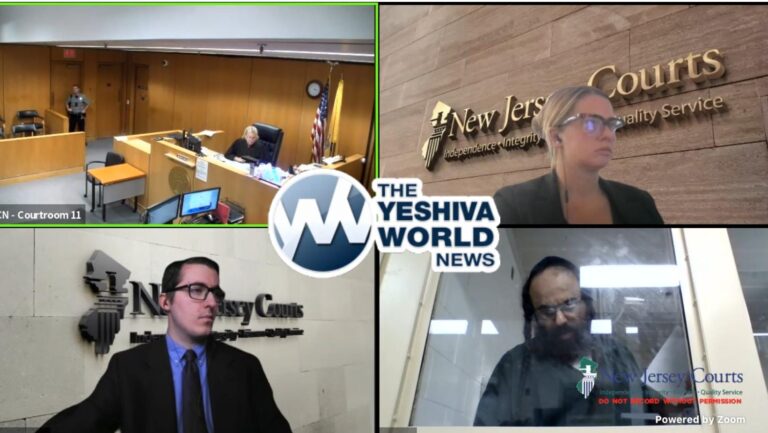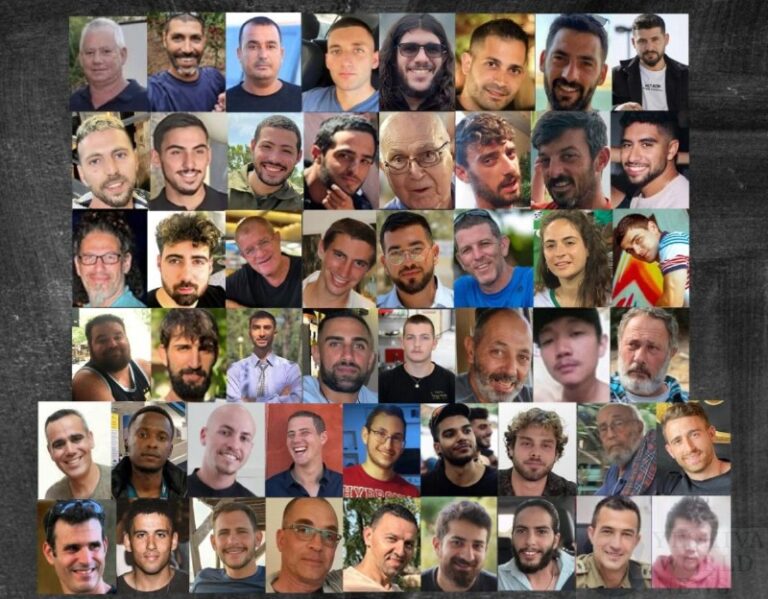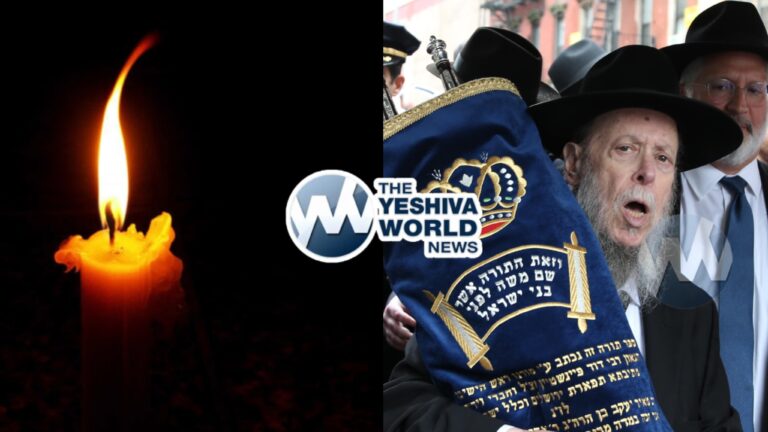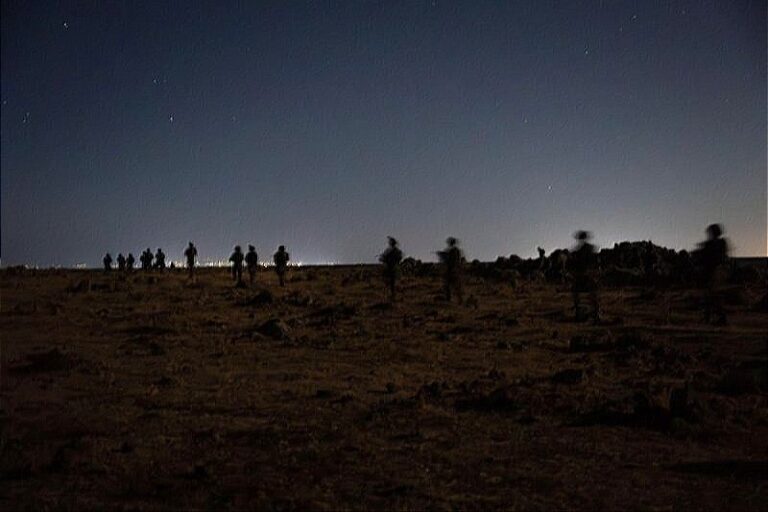 By Rabbi Yair Hoffman for the Five Towns Jewish Times
By Rabbi Yair Hoffman for the Five Towns Jewish Times
Here’s the case: A Yeshiva is in trouble. Its mortgage, now up to 9.65 million dollars, has not been paid and the bank now wants to minimize its exposure. Unbeknownst to the parent body, or to the new board of trustees now running the Yeshiva, a group of anonymous investors finds out about the bank’s offer to sell the note it holds on the Yeshiva’s building. The group then secretly purchases the note from the bank for well below its face value. They then resell the note to the Yeshiva at a huge profit. The profit? It is well over a million dollars and perhaps even closer to two million.
THE QUESTION
Are these people savvy businessmen or are they vile and immoral vultures making a profit on the back of a Yeshiva?
A quick survey of a number of people in shul revealed that most people that were asked were deeply horrified at the deed. One said, “Couldn’t this person find another way of making a living? It is eckeldike!”
THE RESPONSE OF GEDOLIM
This author further posed the question to a number of Gedolim, and Poskim. One responded that from a halachic perspective he is unsure whether what the group of anonymous investors had done can be brought before a Beis Din, but there is such a thing as “Navel B’rshus haTorah – being disgusting within the framework of Torah. The Ramban at the beginning of Parshas Kedoshim elaborates extensively on this issue. Certainly, it is a negation of the Jewish nation’s mandate of “Kedoshim Tehiyu – you shall be holy.” Jewish people should not be stooping to such things.
A prominent Rosh Yeshiva suggested that, notwithstanding any protests of what a “good deal” the yeshiva was getting, the fact that the purchase and sale of the note was obscured in anonymity is indicative of a knowledge that what they were doing was absolutely wrong and unconscionable. He cited the words of Yishayahu HaNavi (Yishayahu 29:15):
“V’haya b’machshach maaseihem.. Woe to those who go to great depths to hide their plans..who do their work in darkness and think, “Who sees us? Who will know?”
It was also pointed out that one of the reasons that mesachaik b’kubia – engaging in gambling ,makes one invalid as a witness (See Shulchan Aruch Choshen Mishpat 203) is because “aino osaik b’yishuv shel olam – his daily activity does not contribute to the economic well-being of the world.” Every person, from a farmer to a store-keeper, to a truck-driver, is contributing to the general functioning and order of the world. His intention may be in order to make a profit, but the bottom line is that he is contributing in some manner to society.
Not so a gambler.
A gambler’s efforts and what he does in the world contribute nothing whatsoever to society. Here too, the actions of these “anonymous investors” were just to turn a profit for themselves, and had no redeeming function whatsoever. Indeed, it just served to gouge money from the limited funds of the Torah public.
ANOTHER VIOLATION
This author would like to suggest that the actions of the anonymous investors are certainly forbidden based upon a number of issues. The first of which is the abnegation of the Mitzvah of Hashavas Aveidah.
EXPANDED HASHAVAS AVEIDAH
Within the Mitzvah of Hashavas Aveidah lies the obligation to protect others from any and all damage. The Mitzvah is not just limited to physically finding a lost object (See SA YD 259:9). The source of this expanded idea of Hashavas Aveida can be found in Bava Kamma 81b. There, the Gemorah derives this notion from the verse in Dvarim (22:2), vehashivosa lo – that the Mitzvah includes damage to his body as well. From the fact that it goes beyond a physical object we can learn that it applies to all form of damage.
The Yeshiva had built financial equity in the building. The building also served its purposes perfectly, as it was built to spec for the Yeshiva. Having to find a new location would severely impact its enrollment, finances, and ability to do its job.
ITS ASSOCIATE MITZVOS
Interestingly enough, both the Minchas Chinuch (Mitzvah 539) as well as the Aruch HaShulchan (end of 259) rule that the two additional Mitzvos of “Lo Suchal l’his’alaim – you cannot hide your eyes” and “hashaiv tashivam, you shall surely return it to them” both apply to nezek – damage as well. Thus the expanded definition of Hashavas Aveidah also encompasses the Torah Mitzvos associated with Hashavas Aveida.
The Tashbatz Katan (495) also rules that the principles of Hashavas Aveida applies to monetary losses involved in loans.
FURTHER POINTS
There is also the issue of causing tzaar – aggravation to people. Generally speaking it is prohibited to cause pain and aggravation to others. Here, however, the aggravation was to be caused to well over 1000 children and their parents – some 2500 people.
The Gemorah in Bava Metzia (58b) derives this prohibition from the pasuk in Vayikra 25:17 – “velo sonu ish es amito – ְone shall not aggrieve his fellow, and you shall fear your G-d, for I am Hashem your G-d.” See also Sefer Hamitzvos 251 and Sefer Hachinuch 338. Granted that one is allowed to look after one’s own property, but here the anonymous investors specifically looked to place themselves in such a situation – like sharks on the prowl. This type of behavior is so beyond the pale that one is hard-pressed to find other examples of it.
RIBIS INTEREST
The deal also involved charging ribis – interest – without the heter iskah document that is generally required for such transactions. Indeed, the prohibitions of ribis are most serious – involving some six Torah prohibitions. While some people tend to quote Rav Feinstein’s response (Igros Moshe YD II #63) that there is no prohibition of Ribis when involving corporations – this is a misreading. There are many caveats that Rav Feinstein lists that are not met here, including the exception of personal guarantees. Also, there are no contemporary Poskim that allow such transactions without a heter iska in place.
LIFNEI IVER
The prohibition of Lifnei Iver in being involved in such an arrangement is also not insignificant. The lawyers who represented the group of investors may have violated the very serious issues of Lifnei Iver Lo Sitain Michshol, another Torah prohibition.
CONCLUSION
In short, the actions taken here by the anonymous investors or investor were nothing short of abominable. There were very likely some ten Torah prohibitions violated. There was a Mitzvah of Hashavas Aveida that was selfishly ignored. Ribbis, Lifnei Iver and Onaah were also violated. Those that were involved in this scandalous action should do Teshuva and donate the proceeds to the Yeshiva that they had so damaged.
FASCINATING YERUSHALMI
There is a fascinating passage in the Talmud Yerushalmi in Sanhedrin (6:7): Rabbi Abba Bar Zamina said in the name of Rav Hoshiah: Greater is a Kiddush Hashem then a Chillul Hashem.
At first glance, this statement seems to be patently obvious. Of what need was there for Rabbi Hoshiah to state it? One possible answer is that Rabbi Hoshiah was teaching us a profound insight in matters of Chillul Hashem. If someone fell victim to his desire for money or for some other desire, it is not too late for him. He can rise to the occasion and walk it back or make up for the vile deed that was done.
Rabbi Hoshiah is presenting us that when someone does such an action, when he undoes the immoral or base action that he had previously violated – then a great Kiddush Hashem has occurred. This Kiddush Hashem that man was endowed with the ability to change and undo an evil he may have committed and that this is what Hashem wants of us, is actually greater than the original Chillul Hashem – the desecration of Hashem’s Name that he had originally initiated.
There are at least two individuals out there who know the identity of the person who did this. Those two people should show this column to him, including the Yerushalmi cited above.
May Hashem give that individual the strength to make the right decision.
The author can be reached at [email protected]











13 Responses
I totally do not understand the issues here, possibly the case has not been presented properly by Rabbi Hoffman.
It is obvious from this article why the investors remained anonymous. Everyone seems to have become an expert in law and halacha and paskened that they are all reshaim!
From my POV it seems that they did something totally legal, smart, and maybe even did the Yeshiva a huge favor.
Let me explain what I am seeing here:
A Yeshiva is in trouble. The bank is unhappy. I interpret that to mean that the Yeshiva has not been paying it’s mortgage. With such a huge loan – almost 10 million dollars, the bank is sure to foreclose. But that would mean kicking out the Yeshiva, and who would be willing to buy the building from the bank and then have to face the angry mob? Never mind that the Yeshiva borrowed 10 million dollars and then did not pay it back – NO, it is the EVIL bank that is the bad guys.
If the bank had offered to settle the entire loan with the Yeshiva for a reduced rate, let us say 7 million dollars, would that have been a bargain for the Yeshiva? Remember that they used the 10 million dollars to buy a 10 million dollar building, that they can now own free-and-clear for only 7 million. To me that sounds fantastic! The bank would be seen as merciful and charitable!!
Now let us further imagine that some very shrewd investors bargained that same bank down to 4 million dollars – which the bank might NEVER have agreed to give to the Yeshiva, since they are not happy with and no longer trust the Yeshiva. But for cash-in-hand outside investors, the bank reluctantly agreed.
If those same investors now resell the loan to the Yeshiva for 6 million dollars, ignoring for a moment that they made 2 million profit, the Yeshiva is still avoiding a foreclosure and getting the bargain of a lifetime!!
And where does Ribbis come in here anyway? There is no interest, just a sale.
Reply to #1.You write “It is obvious from this article why the investors remained anonymous”. The reason the investor remained anonymous is because HE DID WRONG THE YESHIVA.What the investor should have done ,tell the Yeshiva that he would like to purchased the note from the bank at a HUGE DISCOUNT ,and then sell the DISCOUNT NOTE to the Yeshiva at his COST.
#2 Why? You are not living in the real world. This is called business. The best deal is where everyone comes out gaining something. The bank wrote off a debt for which it got tax relief, the Yeshiva failed to pay its mortgage but still came out on top keeping the building and the investors made a profit. That is what investors do. If it had not been for them the Yeshiva would likely have closed. Would that have been a better finish to the story?
On the flip side, if the investor did not take a profit, it’s possible the note sale would appear to be collusion between the investor and the yeshiva and have the appearance of a straw sale that the yeshiva coordinated (especially if the investor was frum). A regular business profit taken by the investor was likely to the yeshiva’s benefit so as not to give the appearance of a straw sale.
Reply to #3,a real YID would have giving the note to the Yeshiva at his COST.As to “You are not living in the real world. This is called business”.I AM LIVING IN THE REAL WORLD ,I AM B’H A BUSINESSMAN, I HAD B’H A HUGE HATZLACHA AFTER I SOLD A HOUSE AT MY COST TO A YESHIVA.The Yeshiva would have had to pay me almost any price since this house was in the middle of the Yeshiva’s expenatation.My advice to this”investor”is to return the profit to the yeshiva ,since he is NOT going to see any HATZLACHA from that profit.I have EMUNA that Hashem will send Hatzlacha to this YID afterward.
How did they buy the note if they couldn’t afford to pay the mortgage?
I agree with Verizon49 but think the point is actually stronger. Sure, this is “business” but since when is a Yid allowed to threaten to close a Yeshiva, throw teachers and Rabbeim out of their jobs and force 1,000 girls to find another school? To borrow a phrase from Avreimi, I realize we live in the “real world” where Yiddin do horrible things to one another for the sake of a profit, but that doesn’t mean it is halachically or hashkafically allowed. Just because the school got a reduction in the amount it owes does not mean that the TACTICS that were used here and the tsar caused to thousands of people are permitted. I agree with Verizon49 that the “investor” will see no hatzlacha from this profit which comes from causing pain to a lot of people.
I agree, there seems to be some information that’s missing.
What did the investor pay for the note? How much did they sell it for?
What they said in Israel is nice, but not that relevant, unless they heard the investors side!!
Interesting. Now time for a halachik analysis of a school ‘rabbi’ who takes a bank loan knowing it has little chance of meeting its monthly payment obligation….
Rabbi Hoffman while there is a side to say what you are saying there is something very wrong here. That is that you are not being Dan lcaf zchus.
Let me explain…first a couple of years ago I found myself in the exact same situation as these investors there was a yeshiva with a non performing loan and the bank was looking to sell the note because what are they going to do with a yeshiva. I spoke to a few Rabonim about this. My first inclination was to get a message to the board of the situation and let then get together the money to fund the purchase. However there is a major risk here that is anyone that is in this business of note buying would be risking their entire business to do such a thing. If a bank finds out that an investor contacted a borrower before actually purchasing the note they will blacklist him. Further more there are specific agreements which are signed which forbid this and open the investor up to a lawsuit. So 1. By do anything but remain anonymous they would be risking their business and lively good 2. It is direct breach of contract between the investors and the bank. Another point is how is the yeshiva even able to pay off the mortgage even at a discount? The investor is taking a huge risk buying out the note to make sure that a bank doesn’t foreclose. The fact that they were anonymous shows that they have no idea wetter or not they could be paid back even at cost. Besides the risk involved there is also the cost of money. How many people do you know that have ten million dollars lying around to purchase a seemingly risky deal?? I think you need to retract what you wrote until you find out exactly what their intentions are because while you say staying anonymous shows their guilt I say it shows their honesty. Now that you know the other possible side maybe next time you will look more into it first. I am usually very much behind you but with all respect I think you jumped the gun here.
BTW in my situation I was told there is no mitzvah to put your Parnassus on the line and therefore I let someone close by know of the situation and I stayed away.
I have another question about your potential issue with this….why is it any different than any other business that profits off of a yeshiva? You can decide who has a right to make money and who doesnt?and how? There are plenty of people who profit off of yeshiva and there are plenty of yeshiva that are run as a business…the people who give back without taking for themselves they can be praised but the ones who don’t does not mean they should be cursed and does not mean they did anything wrong….it is very easy for someone else to say what they could’ve or should’ve done.wait until you are in the position and see what you would do.
In response to comments 10 and 11 — again, the issue is one of tactics. No one is saying it is wrong to profit from a Yeshiva. That is what every employee or vendor of a Yeshiva does. The issue is whether you can threaten to close a Yeshiva and fire all of its employees, in order to make a profit. That is what Rabbi Hoffman is saying is very wrong. And this is not a matter of Dan L’Kav Zchus either because we are talking about a situation where the investor has actually done all of this, so even if he had good intentions, it is objectively wrong to sue a school, threaten to close it and fire its teachers in order to make a million dollars profit. And for those who think it is OK to do this, is it OK to actually go ahead and foreclose against the school in the end, take the building and sell it for a profit — or is that where we draw the line? Again, we live in a society where Yiddin do awful things to other Yiddin and say “it’s just business” for the sake of a profit. That does not make it right. And this investor knows it, which is why he cloaked his identity.
Fg